
In Focus
Sunit Vakharia
Chief Technology Officer
U GRO Capital
The critical goals of implementing technology are innovation, secure operations, and ease of business.
There is an adage that every adversity brings a unique opportunity. The COVID-19 pandemic has demonstrated that there is a degree
of truth to it.
There is no doubt that the implication of COVID-19 has put tremendous stress on organizational budgets, focus areas, and operating policies. However, as the scale of this unparalleled event unfolds, many organizations are also developing new business models and strengthening their virtual capabilities to create fresh revenue streams.
In a recent interaction with Better World, Sunit Vakharia, Chief Technology Officer, U GRO Capital, shared insights around the current mindset of technology leaders and the importance of technology-led solutions to navigate the current crisis. (U GRO Capital is a highly specialized, technology-driven lending organization that focuses on providing customized, sustainable solutions to small and medium businesses.)
Excerpts from the interview:
Better World: How has COVID-19 impacted your business? How have you leveraged technology to achieve business resiliency?
Sunit Vakharia: While the unpredicted COVID-19 epidemic has threatened our sense of normalcy, it has also pushed people to innovate and reimagine the conventional business models.
At U GRO Capital, we’ve utilized the current situation as an opportunity to scale our business digitally. U GRO Capital provides loans to small and medium-sized companies. We extensively focus on technology and analytics as enablers to onboard our customers and disburse money as and when required by them.
Technology has played a pivotal role in expanding our operations and customer base during the COVID-19. Even before the spread of the pandemic, we were equipped to deal with a fully remote working situation. We’ve been using remote collaboration tools such as Skype for Business, and Microsoft Teams, among others, since the commencement of our operations in 2018. All U GRO employees can work from anywhere, and there is no location constraint for anyone, helping them stay connected and manage client expectations. Similar engagements have been done with our vendor partners. All our technology developments and meetings with partners happen in an agile way over online platforms, and I am happy to share that significant efficiency has been observed in this new operating world.
We continue to build and deploy digital platforms. All aspects of sourcing new customers, servicing, and collecting documents are being done digitally. This has been the basis of our philosophy. We rolled out the digital KYC verification and digital document collection process during the days of the pandemic-induced national lockdown when our executives could not visit customers. These digital processes are clear differentiators for us.
Through our platform, we ensured that the entire communication and verification process runs through our video solutions. From the photograph of the factories to geo locations, customer coordinates, survey inputs, and the related verification, all procedures can be completed through this platform. This solution has helped us onboard our customers digitally and curtailed our visits to customer premises. We use statistical predictive models to assist, understand, and underwrite our customers better. Through AI-driven models, we assess our customers’ business requirements and offer the best product for their long-term growth. We have incorporated machine learning and analytics capabilities in our assessment solutions to drive exceptional customer experience.
Nevertheless, there are a few requirements that cannot be completed digitally, for instance, submission of post-dated cheques or specific covenant necessities. Still, I am sure, over time, we will devise solutions for that as well.
Better World: How have IT spending priorities changed due to COVID-19?
Sunit Vakharia: U GRO Capital’s management provides tremendous support and encouragement to foster innovation and to build scalable yet secure platforms. COVID-19 has pushed enterprises to leverage tech and to find new ways to empower their stakeholders. They are focusing on more unique capabilities to facilitate remote working.
In the current scenario, technology leaders will continue to evaluate infrastructure, applications, and security for supporting their employees, partners, and customers. Many technology spending priorities are being rationalized from the perspective of the new normal. Focus on digital transformation has been amplified, and enterprises are swiftly turning to automation and analytics to make smarter decisions. At U GRO, our focus will continue to be on innovation, and we are working towards developing new business lines and automating end-to-end supply chain processes. We are also planning to introduce a unique secured loan product very shortly. We’re building platforms in such a way that makes sure our core platforms remain constant while our ecosystem gets evolved incessantly.
Sunit Vakharia
Chief Technology Officer at U GRO Capital
Sunit is a senior strategic executive with over 19 years of rich experience in technology implementation. He has an exceptional understanding of the financial ecosystem, analytics, and data-based insights.
Sunit is a constant learner and has essayed various roles on the strategic IT leadership and execution fronts, notably in solving business problems through technology delivery, program management, business transformation, and client relationship management.
Before U GRO Capital, he had worked for global multinationals such as HSBC, Merill Lynch, SAS, Accenture, and ICICI Bank.
Top skills
- Strategic Leadership
- People Management
- Process Improvement
Honors/Awards
- Most Valuable Business Partner
- HSBC Technology Winner
- HSBC Technology Runner Up
Education
- Strategic Thinking and Leadership, University of Pennsylvania – The Wharton School Leadership Management Training
- Bachelor of Engineering, Instrumentation, University of Mumbai
We use multiple digital channels to facilitate customer interaction, and this will continue to be a focus area for us.
Better World: Where are you on your cloud journey? In case of multiple clouds, does orchestration pose a challenge?
Sunit Vakharia: We are a cloud-native architected organization. We have zero presence on physical infrastructure, an approach that will remain applicable in future. We do not feel the need to build a private cloud for our business. We operate on a self-service model, and hence do not need any physical infrastructure. The SaaS model works best for us. However, we may explore the possibility of using a hyper cloud approach for some of the use cases. This is largely because, at times, a specific cloud becomes expensive for certain use cases.
At this moment, we do not need to orchestrate multiple clouds, as we are using a single public cloud provider. In the near future, if a need arises, plenty of orchestration tools are available in the market.
Better World: As a technology leader, how critical is it to balance the short-term revenue requirements against long-term technology implementations?
Sunit Vakharia: There is a strong understanding of what needs to be prioritized. The current COVID-19 situation is undoubtedly complicated. It requires leaders of all departments, and not just technology, to make a thorough evaluation of all investment decisions because ultimately, you’ve to run business.
The critical goals of implementing any new technology are innovation, secure operations, and ease of business. Their importance can vary for different organizations, depending on their nature and scale of business. Many young enterprises make the mistake of implementing a technology solution because someone else is doing that, which is wrong and misleading. All technology implementation decisions should be finalized after getting answers to these questions: Is it making sense for my organization? Will it help my customers and the business we operate? Will it help in driving our future aspirations and the business goals we intend to achieve in the next quarter?
For instance, at U GRO Capital, we did not make investments in Blockchain technologies, which is exciting, yet some time away from the overall ecosystem maturity. So, we will not look at such pieces now and can explore them at a later stage when it makes real-life business sense for us. But what we want to do is to enable our customers and the sales team to work efficiently, keeping in mind the social distancing measures; and limit the physical visit and interaction during the collection of documents or at the time of money disbursement.
U GRO Capital’s customers are small enterprises, and we do understand that they need handholding. So we need to implement solutions that are relevant and more comfortable for our customers to understand and use.
Better World: You mention security as a key focus area for enterprises. Can you share some of the initiatives taken by U GRO Capital to enhance your information security architecture?
Sunit Vakharia: We’ve invested in the Endpoint Detection and Response (EDR) platform. It is a cloud-based endpoint protection platform, which is designed to overcome the confines of legacy security solutions. The platform protects entire traffic from malware attacks, ransomware attacks, and other potential threats coming through either the web or emails, as those are already predicted. We are also implementing industry-leading Enterprise Threat Protector DNS for controlling what can be accessed on our networks. Besides, a Data Loss Prevention (DLP) solution from Microsoft has been deployed. That means all the emails that typically come to us are getting monitored, thus ensuring that our teams do not get spam emails. It also helps us detect and block sensitive data transmission.
We are also working to implement a privileged/password access management (PAM) solution, which means anyone who wants to access our infrastructure, our database, or the applications need to request access. The request will come for approval to our information security team, which will review it and open up the entrance to the network border. PAM solutions ensure that there is no illegal access through the internet. Through PAM, all network access, control, monitor, and infrastructure can be audited. This enables us to see the tasks or actions done by a specific individual.
Information security is a continually evolving area, and we will continue to invest in solutions to strengthen our IT security defense on an ongoing basis.



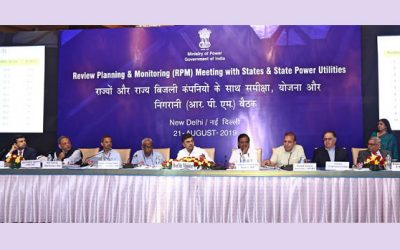
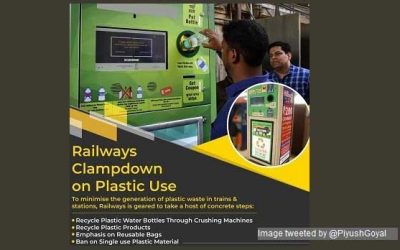
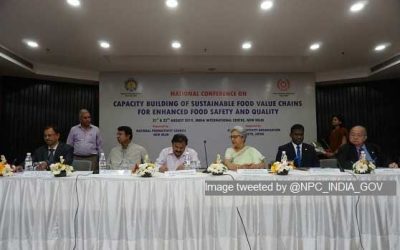
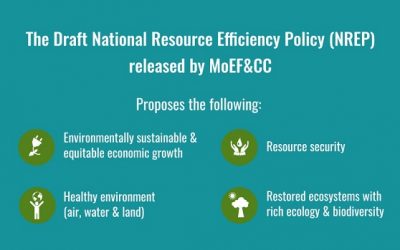
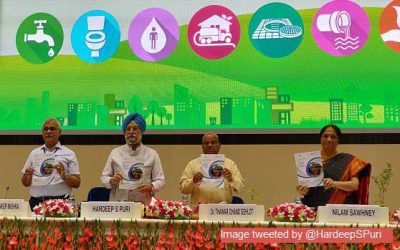

0 Comments